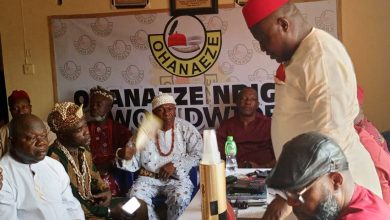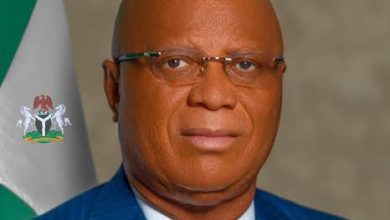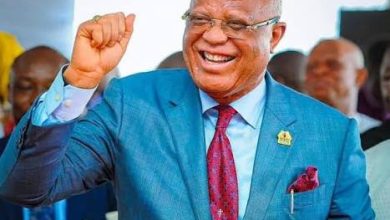
Opinions have remained divided over the recent outburst from a former minister of aviation, Chief Femi Fani-Kayode, and the disparaging remarks he made about a Daily Trust reporter, Eyo Charles. Charles had questioned the source of funding for the inspection tour embarked on by the former minister to some southern states. Although the division of opinion on the now-viral video is between those who condemned the outburst of the former minister and those insisting that the reporter’s question was insulting, it is incomprehensible that more than 10 reporters witnessed this incident almost one week ago but they neither objected to the diatribe of the former minister nor reported it.
READ ALSO: Ini Ememobong’s Exemplary Streak
Beyond question, the former minister’s furious tirade is condemnable, however, the complicit of silence from every reporter in that room made matters worse. Even if the choice of words by Eyo Charles did not go down well with the former minister, why were all the reporters tongue-tied as Fani-Kayode verbally assaulted their colleague for more than two and a half minutes? At least they could have objected to the former minister’s use of the word ‘very stupid’ on their colleague or staged a walkout in protest. Instead, they sided with the former minister, queried their colleague for asking the question, and even made him apologize. People that are supposed to be the custodians of the watchdog role of the media looked on like toothless dogs as a former minister shredded their colleague’s self-esteem and credibility. A subdued Eyo Charles muttered ‘I’m sorry sir’ repeatedly while his colleagues in the room looked befuddled.
Leonard Peltier said, ‘Silence is the voice of complicity’. The fact that none of those journalists reported the incident afterwards suggests complicity. None came forward with the story until the video surfaced online one week after. The general public may be enraged that Fani-Kayode acted uncouthly and made rude comments at a reporter but the mere fact that this happened in the presence of his colleagues and they all managed to keep this incident under wraps for a week means they consented to whatever transpired in that room. Maybe for pecuniary benefits or future goodwill, but all of them by their silence gave express permission for Fani-Kayode to speak to them as he desired and that is what he did.
It is now a little too late for Charles to tell his side of the story. Anything he writes now is an unwise attempt at face-saving. Why did Charles not speak up earlier? He said he was so disorganized that he had to apologize to a man he claimed ‘drenched’ him ‘with venom’. Fani-Kayode’s reaction was overboard but the unforced apology tendered by the Daily Trust reporter to the former minister is an admittance of guilt. He did not have the backing of his colleagues in that room probably because they were all preserving their self-interest or they considered his inquiry as mischievous. Like the moderator of the event, Christian Ita, said, ‘The guy didn’t even ask a question. The guy said ‘even though you have not told us who is bankrolling your trips’. This is similar to Fani-Kayode’s statement that Eyo Charles did not ask a question but made an assertion when he said, ‘“We do not know who is bankrolling you”, which resulted in the outburst.
READ ALSO: EFCC Chairmen And Their Controversial Ouster
The restraint exercised by the Daily Trust reporter probably had more to do with the benefit that would come after Fani-Kayode’s interview and not the news value of the press briefing. For instance, when CBS News White House correspondent, Paula Reid, challenged President Donald Trump on his false claims about veterans’ health care, even though Trump tried to shut down her question, she stood her ground, confronted the President with facts and the President had to walk away to avoid further humiliation. There are several incidents where journalists stood their ground with facts against Trump and they did not back down just because the President got twitchy. Eyo Charles should have stood his ground, and objected to the name-calling by Fani-Kayode.
Fani-Kayode toed that path of name-calling the reporter because the press briefing was at his behest and he already had ‘PR’ in envelopes for each reporter. None of them wanted to miss their ‘brown-envelope.’ That was probably the reason they all swallowed the insult. This brings to light the issue of the Nigerian journalist and his welfare. Several journalists in Nigeria have lamented their poor welfare packages, which has made them resort to receiving gratification that make them keep quiet when they should speak up just to make ends meet.
For journalists to discharge their duties effectively, media owners must improve their welfare packages. When journalists are motivated through good and attractive welfare packages, they will practise journalism with courage even in the face of intimidation and attacks.




